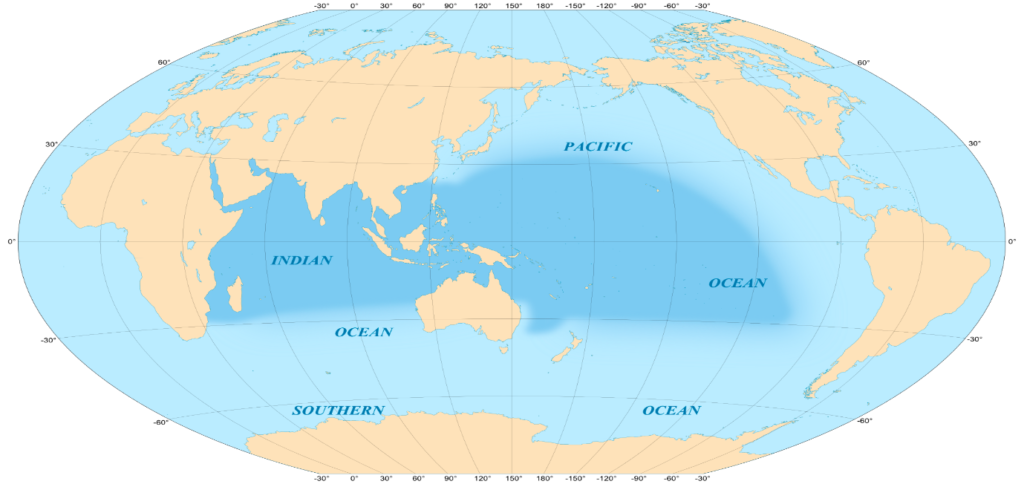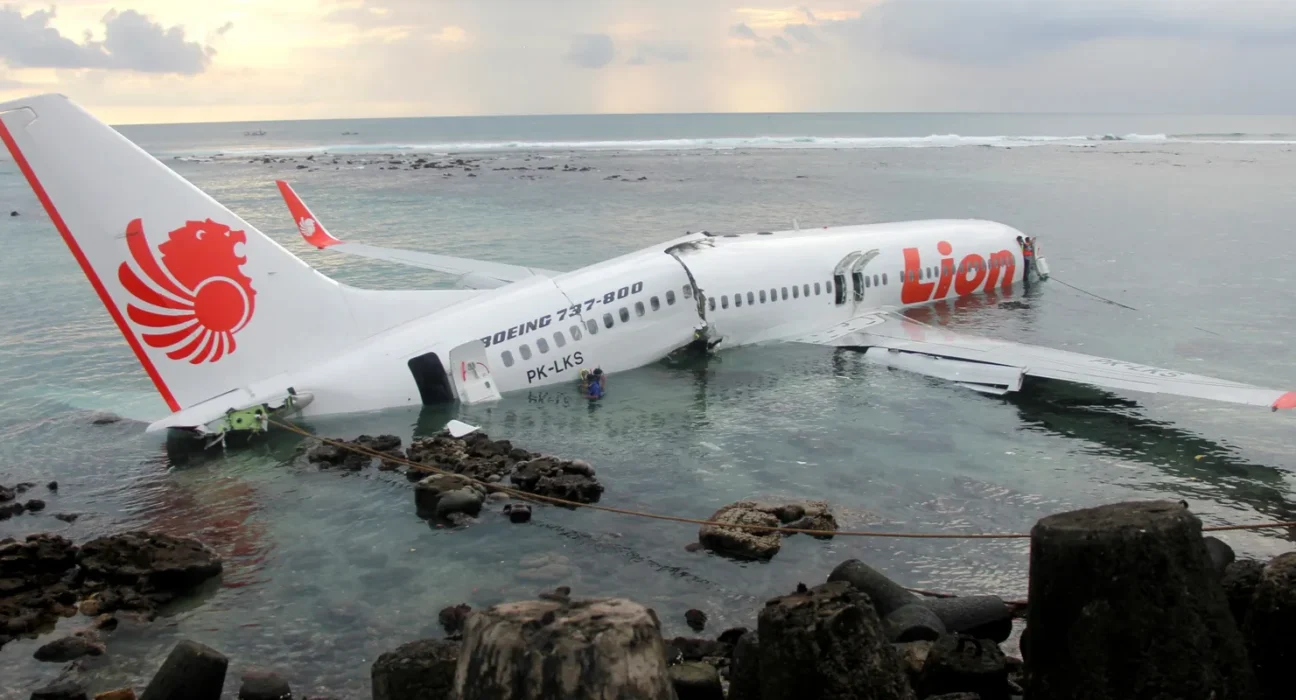Indonesian Plane Crash 2021 – A Wake-up Call
The recent accident highlights the limitations in our underwater search & recovery capabilities
On 06 January 2021, an Indonesian airline aircraft met with an accident in the Java Sea with 62 people onboard. In the recent past, Indonesia has had a number of airline accidents in the Java Sea. In December 2014, as many as 162 people went down onboard an AirAsia jetliner, and in 2018, a Lion Air aircraft crashed with 189 passengers. We are aware of the MH370 from Malaysia, Indian Navy’s AN32 in the Andaman Sea, and many other airliners that could not be recovered. Recovery of the debris is extremely critical to investigate the cause of the crash, so that we can ascertain lessons for the future and make amendments. The track record of Underwater Search & Recovery (UWSAR) has been extremely poor across the globe and is further degraded in the tropical littoral waters.

Globally, maritime activities are seeing an upward trend and more specifically in the tropical littoral waters of the Indian Ocean Region (IOR) and the South China Sea (SCS), which have become strategically very relevant in the 21st century. More and more extra-regional powers and the nations within are maintaining their strategic presence in these waters with the deployment of military and research platforms with multiple submersibles. The Sea Lanes of Communication (SLOC) are seeing a massive jump in numbers and during the ongoing COVID_19 pandemic a surge in accidents was also observed. Given the Indo-Pacific Strategic Space defined across the tropical littoral waters of the Indian Ocean and the Pacific Ocean (as shown in Fig. 1), it is inevitable that we will have more and more activities in these waters.
The Security and Growth for All in the Region (SAGAR) vision of the Honourable Prime Minister of India puts us in a different league. The Indo part of the Indo-Pacific now has a different meaning and our own capacity & capability building has to address varied dimensions. UWSAR will be the most critical aspect in this. The conventional UWSAR significantly falls short of requirements in the tropical littoral waters. Many of us believe that we will be able to recover the underwater wreckage by deploying our search and recovery resources. UWSAR is highly challenging in tropical waters, with the very diverse underwater conditions in terms of hydrology, bathymetry, acoustic propagation and more, and needs far more preparation.
Tropical littoral waters ensure sub-optimal performance of the sonars deployed in the underwater domain for any acoustic survey mission. The degradation is of the order of over 70% based on the propagation conditions. The frequency versus resolution and the range versus depth are critical factors in planning the UWSAR. While higher frequency is critical for better resolution to be able to identify the debris, the higher frequencies suffer significant attenuations underwater during propagation and may not be able to detect the object at high range. Given the sub-optimal performance of the sonars in the tropical littoral waters, the specifications of range given by the Original Equipment Manufacturer (OEM) just do not hold good and thus the planning and resource deployment for UWSAR in these waters requires a different approach. Multiple levels of SAR will be required to actually identify the wreckage – the initial search to identify the possible location with low frequency sonar (low resolution) and then the deployment of high frequency sonars to actually identify the debris. Ship borne and Autonomous Underwater Vehicles (AUVs) will have to be appropriately used to deploy the sonars at the location. Large scale data analysis, right from the prediction of the location, and validation of the site to the actual deployment of the acoustic survey needs a substantial amount of preparatory work.
The socio-economic and political situation in the region does not allow any of the nations to deploy significant resources for indigenous Research & Development (R&D) and focus on Science & Technology (S&T) capacity and capability development. The constant budgetary competition among the socio-economic requirements to meet immediate needs versus long term S&T investment is a difficult political decision and often unviable. The fragmented geopolitics of the region further adds to the lack of coordination and consolidation among nations in the region to come together and work in a coherent and cogent manner. This allows extra-regional powers to meddle in domestic politics and further disrupt regional peace and prosperity. Non-state actors are being used as a regular instrument of state foreign policy, impacting regional cooperation and consolidation. Maritime governance is a serious casualty in the absence of effective policy backed by S&T and local site specific R&D. Given the trans-ocean nature of the maritime commons, only a regional framework can work.
Maritime governance is a serious casualty in the absence of effective policy backed by S&T and local site specific R&D. Given the trans-ocean nature of the maritime commons, only a regional framework can work.
The Underwater Domain Awareness (UDA) Framework proposed by the Maritime Research Centre (MRC), Pune can potentially provide solutions to the challenges and opportunities of UWSAR. The pooling of resources and synergising of efforts across stakeholders will facilitate safe, secure, sustainable growth for all in the region and significantly enhance maritime governance. The four stakeholders – maritime security, blue economy, environment & disaster management, and science & technology – need to work together both at the national and regional level. Regional cooperation and consolidation is inescapable not only to better manage resources within, but also to keep extra-regional powers from meddling in our internal affairs to further their strategic objectives.
Effective UWSAR can become a very critical diplomatic instrument for regional maritime cooperation under the SAGAR vision. India needs to play a leadership role in taking forward UWSAR in all its dimensions backed by the UDA Framework, which covers all the three aspects of Policy, Technology & Innovation, and Human Resource Development. There is merit in understanding and appreciating the nuances of the tropical littoral waters and initiating a sustained programme for effective UWSAR in the IOR under the SAGAR vision to start with, and then extending it to the entire Indo-Pacific Strategic Space.
The way ahead could be three tiered as follows:
Outreach: This will translate to conducting workshops and seminars for the students and professions to make them aware of the challenges and opportunities. Academic institutions and stakeholders can come forward and host these short (up to one week) events.
Engage: In the second stage we can commence capacity and capability building for the stakeholders. The User-Academic-Industry partnership is the most effective format to drive this engagement in a comprehensive manner.
Sustain: The momentum built in the first two tiers needs to be sustained based on the regional framework. Strategic bilateral and multi-lateral forums like IORA, BIMSTEC, Indian Ocean Commission and others should make UWSAR, part of their agenda and drive this in an effective manner.
This can be achieved by setting up of a Centre of Excellence with five sub-centres in the future. The sub-centres will include a research centre, academic centre, training centre, incubation centre, and strategic centre.
The UWSAR, requires far more seriousness at the top, to be able to make sure, we present a reasonable response to any incident in the future. The Indonesian airline accident should be a wake-up call and we all should invest towards capacity and capability building to comprehensively prepare an effective response mechanism.

Dr. (Cdr.) Arnab Das
About Author
Director, Maritime Research Center, Pune


